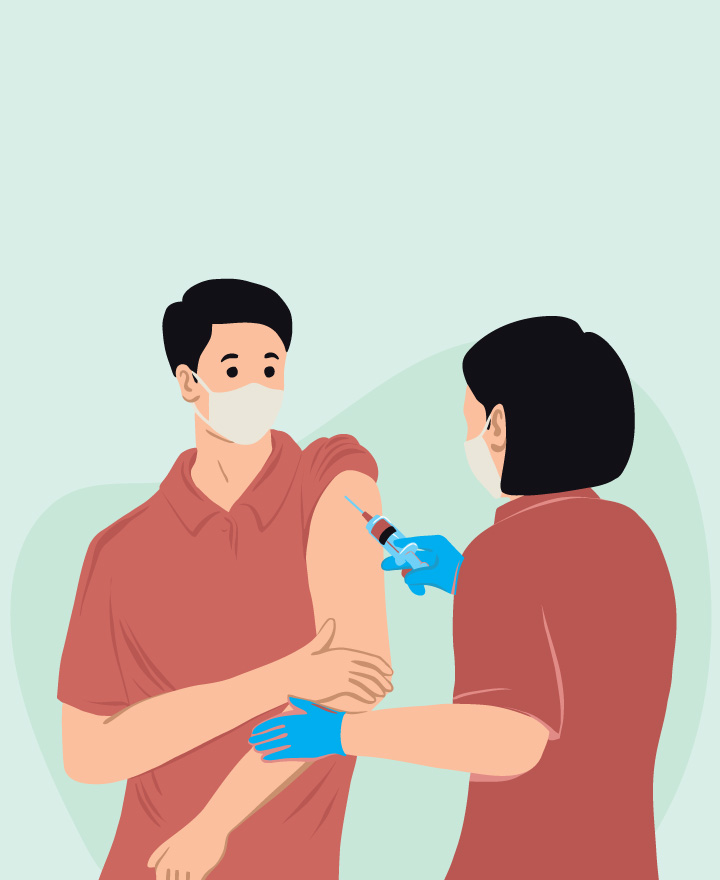

Rabies - causes, treatment, and prevention
Rabies is a serious illness that happens after being bitten by a stray animal that is infected. It can prove to be fatal if not treated quickly. There are also some ways in which it can be prevented. Read on to know all about rabies, its treatment and prevention.
What is Rabies?
Rabies is a viral disease which spreads by the saliva of infected animals and leads to brain inflammation. It is caused by the Rabies lyssavirus. The rabies treatment is only effective if it happens before the virus reaches the brain and it can potentially kill a person if not treated immediately.
Cause of Rabies?
Rabies is spread through a deep bite or scratch from an infected animal. In India, it most commonly spreads through dog bites. Rabies can also spread through bites of other rabid animals such as cats, racoons or bats. Rabies only gets transmitted within mammals.
How is Rabies diagnosed?
Typically, there are no symptoms right away which make it difficult to diagnose as rabies can lay dormant in your body for 1 to 3 months. Doctors call this the “incubation period.” Symptoms will appear once the virus travels through your central nervous system and hits your brain. However, there are some specific methods by which your doctor may diagnose rabies which include a saliva test, a blood test, or a brain MRI.
Treatment
• Wash the wound right away with soap and water. That’s the best way to lower your chances of infection.
• See a doctor as soon as possible. They’ll treat the wound and begin treatment with the rabies vaccine -- postexposure prophylaxis (PEP). The vaccine is always successful if it’s given immediately after exposure. You’ll get one dose of fast-acting rabies immune globulin, which will prevent you from getting infected by the virus. Then you’ll get four rabies vaccine shots over the next 14 days.
• If you are pregnant, rabies shots are safe for you and your baby.
How dangerous is Rabies if not treated?
Rabies, when not treated, is fatal because the virus spreads through the central nervous system and you will develop other, more severe symptoms. They include:
• Inability to sleep (insomnia)
• Anxiety
• Confusion
• Slight or partial paralysis
• Hyperactivity
• Being easily agitated
• Hallucinations
• Salivating more than usual
• Difficulty swallowing
In time, these symptoms give way to coma, heart or lung failure, and death.
How can I prevent Rabies?
Rabies prevention is possible and here are the ways in which you can prevent rabies:
● Vaccinate your pets.
● Keep your pets away from stray animals.
● Stay away from stray animals and if they are injured, then call for help
● If bitten, seek for medical assistance right away.
● If you are prone to animal bites, then take the rabies vaccine regularly as a precaution. Speak to your doctor about it.
These are the simple ways in which rabies prevention is possible, so do not ignore them at any cost.
Conclusion
Rabies is spread by a virus that gets transmitted to humans from rabid animals. The illness is preventable and treatable provided the vaccinations happen on time.
Source:
https://my.clevelandclinic.org/health/diseases/13848-rabies#management-and-treatment
https://www.self.com/story/what-happens-when-you-get-rabies
https://www.mayoclinic.org/diseases-conditions/rabies/diagnosis-treatment/drc-20351826
Disclaimer: This blog provides general information and discussions about health and related subjects. The information and other content provided in this blog, website or in any linked materials are not intended and should not be considered, or used as a substitute for, medical advice, diagnosis or treatment. Kindly contact your Doctor before starting a new medicine or health regime.
Related Articles
Rabies and Its symptoms In Human
Schizophrenia symptoms And symptoms And Treatment
What causes Arthritis And Can you Prevent Itn
Attention deficit Hyperactivity Disorder types And Symptoms
Symptoms of Kidney ailments In Elderly
Published on September 26, 2022

















 Health Insurance
Health Insurance  Travel Insurance
Travel Insurance  Car Insurance
Car Insurance  Cyber Insurance
Cyber Insurance  Critical Illness Insurance
Critical Illness Insurance
 Pet Insurance
Pet Insurance
 Bike/Two Wheeler Insurance
Bike/Two Wheeler Insurance  Home Insurance
Home Insurance  Third Party Vehicle Ins.
Third Party Vehicle Ins.  Tractor Insurance
Tractor Insurance  Goods Carrying Vehicle Ins.
Goods Carrying Vehicle Ins.  Passenger Carrying Vehicle Ins.
Passenger Carrying Vehicle Ins.  Compulsory Personal Accident Insurance
Compulsory Personal Accident Insurance  Travel Insurance
Travel Insurance  Rural
Rural